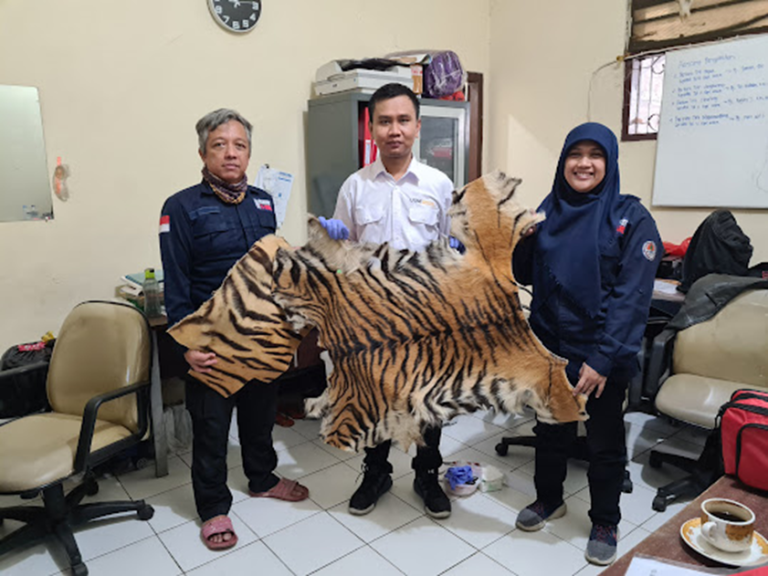In an effort to combat the trade of state-protected animals that threatens the sustainability of wildlife, Lecturer from the Faculty of Biology at Gadjah Mada University (UGM) have provided assistance to law enforcement agencies in the Java Bali Nusa Tenggara region in unveiling cases of crime using forensic DNA techniques.

On Monday, September 19, 2023, a joint team consisting of law enforcement officers and faculty members from the Faculty of Biology at UGM worked together to identify evidence related to illegal trade. This case has garnered attention because the evidence obtained is highly diverse, ranging from oil, animal skins, bones, wallets, to traditional Indonesian hats (peci), all suspected to be from protected animals such as tigers, leopards, clouded leopards, and elephants. Dr. Dwi Sendi Priyono, a lecturer from the Faculty of Biology UGM, coordinated the collection of DNA samples from the evidence found during the law enforcement operation. Forensic DNA techniques were then used to analyze these samples and determine the species of the evidence.
This case serves as a prime example of successful collaboration between the academic institution and law enforcement in efforts to protect endangered wildlife. Improved law enforcement and a deep scientific understanding of forensic DNA identification are expected to help reduce the illegal tiger trade in the future. The research team and law enforcement agencies are committed to continuing their cooperation in safeguarding tigers and other endangered wildlife species from the damaging effects of illegal trade. In this regard, Gadjah Mada University (UGM) supports these efforts and will continue to contribute to environmental conservation and wildlife preservation in Indonesia.

